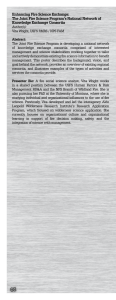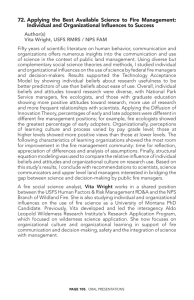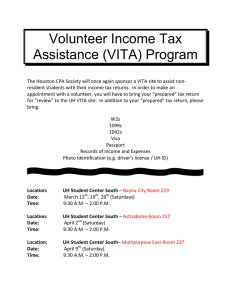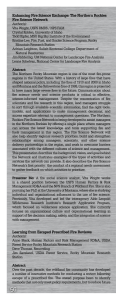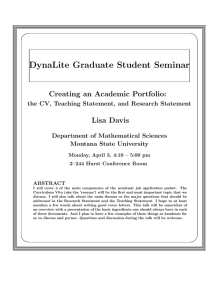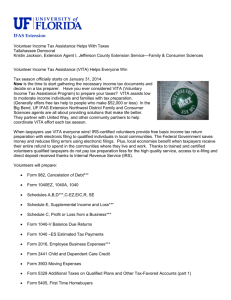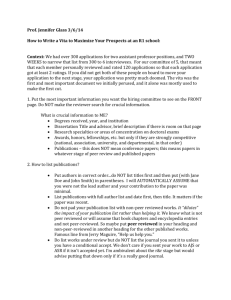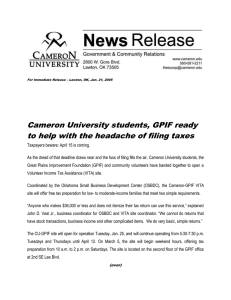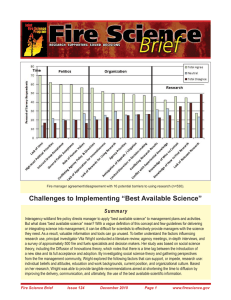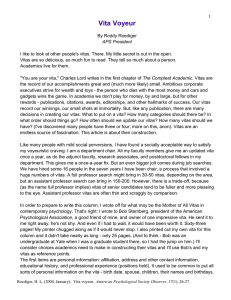Station of the US Forest Service . Paige’s research interests... and sociological influences on how people, particularly private landowners,
advertisement
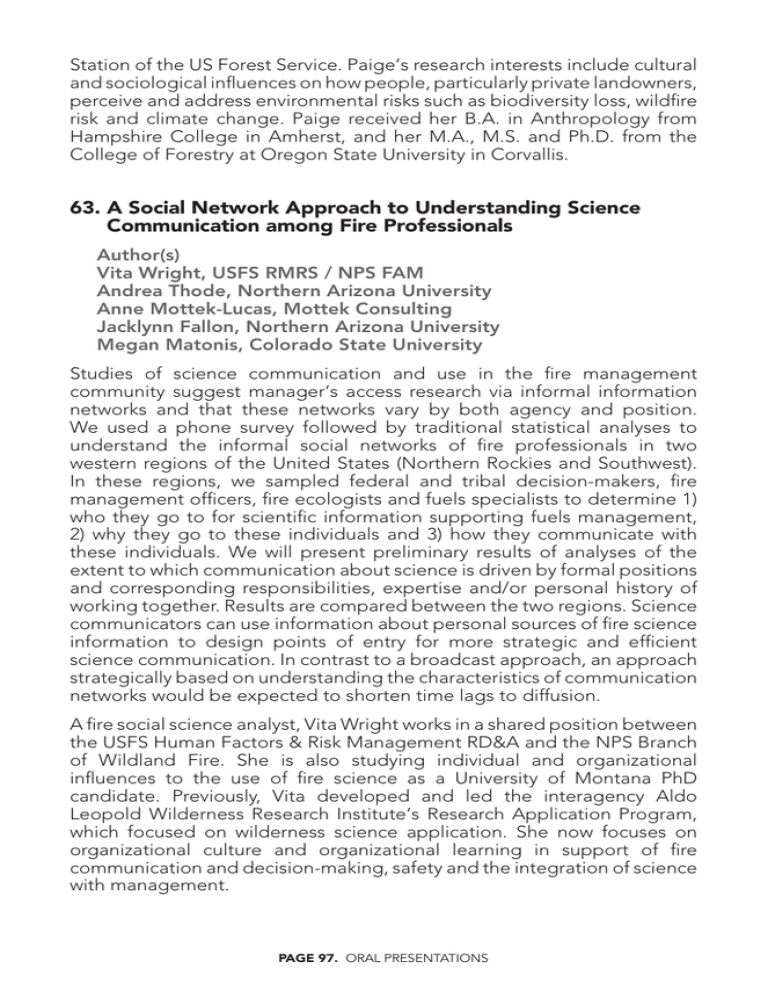
Station of the US Forest Service. Paige’s research interests include cultural and sociological influences on how people, particularly private landowners, perceive and address environmental risks such as biodiversity loss, wildfire risk and climate change. Paige received her B.A. in Anthropology from Hampshire College in Amherst, and her M.A., M.S. and Ph.D. from the College of Forestry at Oregon State University in Corvallis. 63. A Social Network Approach to Understanding Science Communication among Fire Professionals Author(s) Vita Wright, USFS RMRS / NPS FAM Andrea Thode, Northern Arizona University Anne Mottek-Lucas, Mottek Consulting Jacklynn Fallon, Northern Arizona University Megan Matonis, Colorado State University Studies of science communication and use in the fire management community suggest manager’s access research via informal information networks and that these networks vary by both agency and position. We used a phone survey followed by traditional statistical analyses to understand the informal social networks of fire professionals in two western regions of the United States (Northern Rockies and Southwest). In these regions, we sampled federal and tribal decision-makers, fire management officers, fire ecologists and fuels specialists to determine 1) who they go to for scientific information supporting fuels management, 2) why they go to these individuals and 3) how they communicate with these individuals. We will present preliminary results of analyses of the extent to which communication about science is driven by formal positions and corresponding responsibilities, expertise and/or personal history of working together. Results are compared between the two regions. Science communicators can use information about personal sources of fire science information to design points of entry for more strategic and efficient science communication. In contrast to a broadcast approach, an approach strategically based on understanding the characteristics of communication networks would be expected to shorten time lags to diffusion. A fire social science analyst, Vita Wright works in a shared position between the USFS Human Factors & Risk Management RD&A and the NPS Branch of Wildland Fire. She is also studying individual and organizational influences to the use of fire science as a University of Montana PhD candidate. Previously, Vita developed and led the interagency Aldo Leopold Wilderness Research Institute’s Research Application Program, which focused on wilderness science application. She now focuses on organizational culture and organizational learning in support of fire communication and decision-making, safety and the integration of science with management. Page 97. oral presentations
